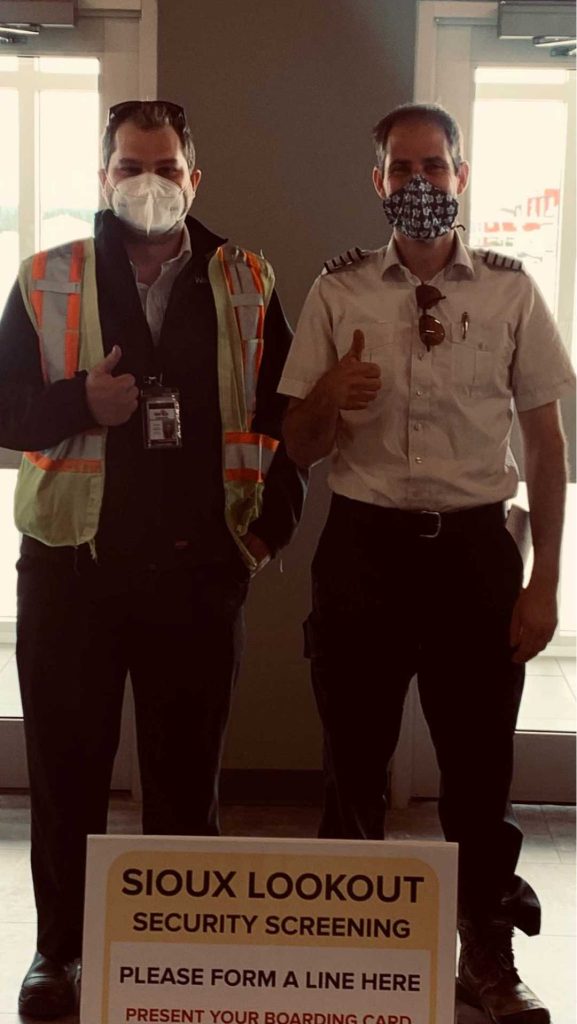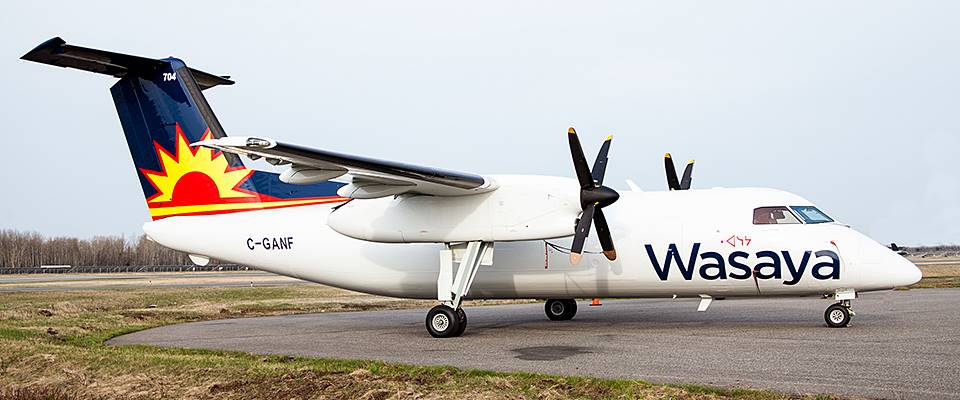Wasaya Airways is an airline based in Thunder Bay, Ontario, Canada. It is a regional airline that operates scheduled passenger and cargo services in northern Ontario and Manitoba. This airline pays pilots an average base salary of CAD$80,534 ($61,000) annually or CAD$6,710 ($5,083) monthly. The typical supplementary compensation is CAD$6,601 ($5,000) annually or CAD$549 ($416) monthly, which may be in the form of gratuities, commissions, shares, cash bonuses, or profit-sharing.
Also Read: Wasaya Airways Flight Attendant Requirements
Wasaya Airways transitioned from operating floatplanes to operating turbine fleets in the late 1980s. The primary focus was on the charter and freight sector, with the administration offices situated in Thunder Bay and the operation centering on Pickle Lake, Ontario. The company continued to operate freight and charter operations in addition to growing into scheduled passenger service in 1995. Wasaya changed the idea of Scheduled Passenger Service to Scheduled Charter Service in 1999. This made it possible for said airline to focus entirely on its main operations, which are the passenger charter service and cargo operation. Eyeing this airline for your Pilot career? Here are the things you should know regarding the salary and benefits.
Contents

Cash Salary Breakdown
Basic Salary – Pilots working at Wasaya Airways can earn an average base pay of CAD$6,710 ($5,083) monthly. This data is based on the published estimated annual base pay rates of glassdoor.com.
Flying Pay – Currently, there is no available data regarding the hourly pay of Pilots on this airline. The rate per hour offer is usually indicated in the job description of most airlines, if not, it will be discussed during the orientation and contract signing process.
Layover Allowance – As of this moment there are no provided per diem pay rates data for Pilots at Wasaya. The specific details of layover allowances, including per diem rates and conditions, are usually outlined in the pilot’s collective bargaining agreement or labor contract with the airline.
Benefits
- Competitive Income
- All-inclusive Benefits Bundle
- The Exchange Income Corporation offers an Employee Share Purchase Plan.
- Benefits of Flight Passes
- Some schedules are both rotational and non-rotational.
- The ramp-to-flight line transition period usually lasts six to twelve months, depending on individual performance and operational requirements.
- Pilot stations at Pickle Lake, Sioux Lookout, and Thunder Bay
- Experience ATR 42/72, DHC-8 (100/300), and Beechcraft 1900 D as part of the fleet.
A break without disturbances – Vacation means free time when it comes to pilots. This is because you are not required to abruptly vanish for an urgent business meeting or excuse yourself occasionally for calls of pending tasks. Pilots don’t have to be on call like medical professionals, journalists, and other businesspeople do. Thus, you will undoubtedly have a tranquil and stress-free holiday or vacation.
Health and Insurance Benefits – Pilots typically have access to comprehensive health insurance plans, covering medical expenses for themselves and often their dependents. This includes doctor visits, hospital stays, prescription medications, and other health-related services.
- Dental and Vision Coverage- Many airline employment packages include dental and vision insurance to address oral and eye care needs. These benefits contribute to overall well-being and may cover preventive services as well.
- Life Insurance- Pilots often receive life insurance coverage, providing financial protection for their families in the event of the pilot’s untimely death. The coverage amount may be linked to the pilot’s salary or a predetermined amount.
- Disability Insurance- Disability insurance is designed to provide income protection if a pilot becomes unable to work due to a disability. This insurance helps maintain financial stability during periods of incapacity.
Flight and Duty Time Regulations – Maximum Flight Hours- Aviation authorities regulate the maximum number of flight hours that a pilot can accrue within a specific period. This is crucial for preventing fatigue-related issues and ensuring that pilots are mentally and physically capable of operating an aircraft safely.
Duty Time Limits- Duty time includes not only flying but also other responsibilities, such as pre-flight briefings and post-flight paperwork. Strict duty time limits are imposed to prevent pilots from working excessively long hours without adequate rest, contributing to overall aviation safety.
Rest Periods– Regulations also mandate minimum rest periods between duty periods to allow for sufficient recuperation. This promotes alertness and helps mitigate the impact of jet lag and irregular schedules.
Also Read: How to Apply Wasaya Airways Cabin Crew Hiring

Video: Wasaya airways 2019 milestone
In this video, you will witness the milestone of Wasaya Airlines in 2019. These milestones are often celebrated within the company and may be communicated to the public and stakeholders as a way of showcasing the airline’s achievements and ongoing commitment to excellence.
Frequently Asked Questions
1. How are pilot schedules determined?
Pilot schedules depend on the airline and can involve irregular hours, overnight stays, and long-haul flights. Schedules are often based on a combination of seniority, bid preferences, and company policies.
2. How do pilots stay current and receive training?
Pilots undergo regular recurrent training to stay current on procedures, emergencies, and aircraft systems. This training is often conducted in flight simulators.
3. Do pilots get paid for recurrent training?
In many cases, yes, pilot recurrent training is paid. Airlines typically consider recurrent training as part of the pilot’s job responsibilities, and pilots are compensated for their time spent in training sessions.
4. What happens during the recurrent training of pilots?
During recurrent training, pilots often undergo simulator sessions, classroom instruction, and examinations to refresh and enhance their skills. Since this training is essential for maintaining safety standards and regulatory compliance, it is generally viewed as a necessary and compensated part of the pilot’s duties.
5. What is a base pay?
The base pay of pilots is just one component of their total salary. A pilot’s total salary includes various elements, and the overall compensation package can vary among airlines and individual employment contracts. The total salary is the sum of Flight Hours Pay, Per Diem, Bonuses, Special Pay and Allowances, and of course Base Salary. The detailed structure can vary from one airline to another.
Summary
Wasaya Airways can give you an average base pay of CAD$6,710 ($5,083) monthly. Given the remote and challenging geography of northern Canada, Wasaya Airways likely has experience and expertise in operating in such conditions. For Pilots, this experience can contribute to reliable and safe transportation services.